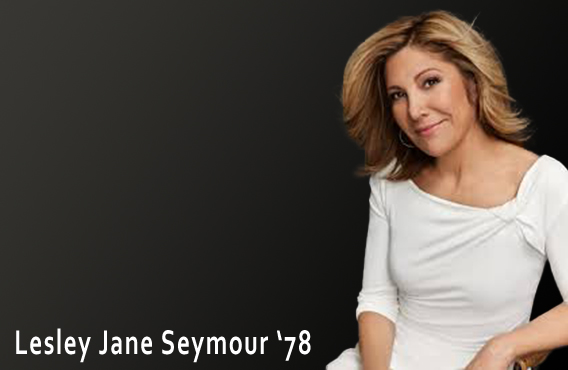SW: What made you decide to attend Duke?
LJS: I had gone to a boarding school that was a feeder school for Wellesley. But I wanted to take a different route. When I visited Duke, I looked up Chapel Drive, and I said to myself, “This is what college is supposed to look like.”

Sterly Wilder. Chris Hildreth
SW: How did Duke help you identify your interests?
LJS: I knew I wanted to write; I had been writing since I was ten years old. I began at Duke as a biology major, but it seemed that everyone wanted to go to medical school except me. So I became an English major. I got myself an internship at the Durham Herald-Sun. There were really no journalism courses back then, so this was purely learning by doing journalism—going to Northgate Mall to check out the Christmas tree. Then I had an internship at Seventeen magazine, and in my senior year, I was actually getting published in Women’s Wear Daily.
SW: You’re leading a major magazine in a challenging time. Have you thought about whether it takes something special to be a female leader?
LJS: I think it does. A lot of the women I worked for were the glass-ceiling breakers and were referred to—not too nicely—as men in skirts. They had to be tough. My generation is very different. We didn’t have to pretend that we were something we were not. I think the most interesting distinction in leadership style is that women might be more adept at building consensus. We don’t like to be out there on our own; we like to bring everybody along with us. The leaders of most media organizations are men. So there are still a few glass ceilings to be broken.
SW: How confident are you about the future of print journalism?
LJS: Right now the print-readership numbers are either flat or going up; it’s not that people are saying they’re not going to read anymore. I’ve been an adjunct professor at NYU, and I’ve had twenty-year-olds say to me, “After being online all day, I don’t want to be reading on my computer all night.” The big problem has been advertising, which has dried up, even though the response to print advertising is much more dramatic than the response to advertising in any other form. We’re going to have to make readers start paying for the quality we produce. But this industry, unfortunately, has taught readers that content is not worth much—just consider all the subscription giveaways you encounter.
SW: How do you feel coming in as chair of the Duke Magazine board?
LJS: Any publication, including Duke Magazine, should be something you get excited to read. I love figuring out what readers want and then giving that back to them, and I love the idea that Duke Magazine can be such a powerful path to engaging with the university.

Share your comments
Have an account?
Sign in to commentNo Account?
Email the editor